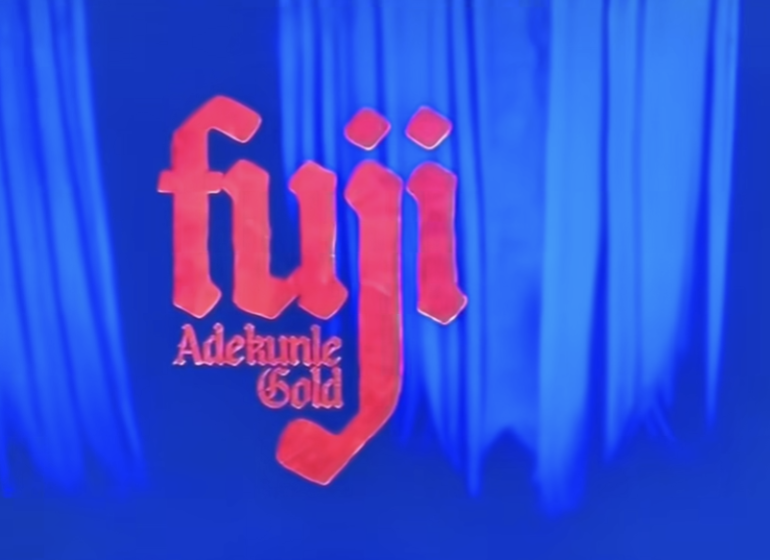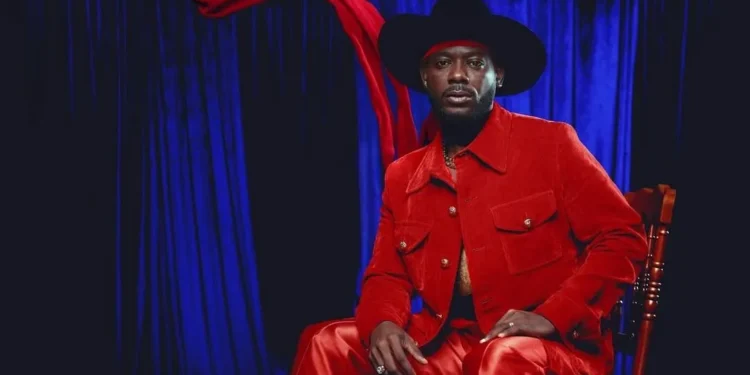When Adekunle Gold announced his sixth studio album, Fuji, anticipation ran high. The title alone carried deep cultural weight, evoking the spirit of Yoruba street music — the percussion-heavy, praise-driven energy that defined legends like K1 De Ultimate, Saheed Osupa, and Adewale Ayuba. Many expected a full embrace of Fuji’s essence: its rhythms, storytelling, and call-and-response textures.
Released on October 3, 2025, Fuji promised to be both a creative experiment and a cultural statement. The project spans 15 tracks, blending Adekunle Gold’s sleek Afropop identity with nods to traditional Yoruba sounds.
A Confident Opening and Sonic Journey
The album begins with Big Fish, a striking 30-second intro that immediately sets the tone. It channels the grand entrances typical of Fuji performances — loud, energetic, and proud. That same momentum continues with Don Corleone, Bobo, and Coco Money, all driven by themes of ambition, pride, and self-made success.

In these early tracks, Adekunle Gold showcases his lyrical maturity and vocal confidence. The beats pulse with life, echoing the hustle and triumph that Lagos embodies.
Moments of Groove and Reflection
Midway through the album, the tone softens. Believe — a reimagining of Bill Withers’ Just the Two of Us — offers a soulful pause, while My Love Is the Same and Love Is an Action featuring 6lack bring a polished blend of tenderness and rhythm
The project reaches one of its brightest points with Many People featuring Yinka Ayefele. Here, Adekunle Gold captures the spirit of an owanbe celebration — the food, the laughter, the dancing — all wrapped in colourful instrumentation. It’s the closest the album gets to embodying Fuji’s joyous community feel.
From there, songs like Attack, Only God Can Save Me, Lailo, Oba, Simile, and I’m Not Done build a reflective close, before the project ends on the emotionally resonant Obimo. The flow feels deliberate, and as the singer himself urged, this is an album best experienced “in order, no skips.”
Fuji as a Concept, Not Just a Genre
Beyond the music, Adekunle Gold explained that Fuji represents more than sound — it’s a symbol of identity. “Fuji is bigger than music. It is Lagos. It’s street royalty. It’s our story, our hustle, our heritage turned global,” he said.
He also revealed that Fuji doubles as an acronym for Finding Uncharted Journeys Inside — a metaphor for self-discovery and personal evolution. However, this symbolic layer was not strongly promoted, leaving many fans to assume the title strictly referred to the traditional Fuji genre.
A Missed Opportunity for Authenticity
While Fuji is sonically impressive, it doesn’t completely deliver on the promise of a genre tribute. The absence of collaborations with established Fuji artists — who could have added the raw, indigenous energy the genre demands — creates a gap between concept and execution.
Even visually, the album cover sparked debate. Fans expected a look rooted in Yoruba culture — agbada, aso-oke, coral beads, or a regal aesthetic befitting the Fuji title. Instead, Adekunle Gold’s red cowboy outfit felt disconnected from the album’s traditional implications.
Verdict: Ambitious, Stylish, but Not Fully Fuji
Fuji is undeniably a strong addition to Adekunle Gold’s discography. It reflects his desire to evolve beyond limits and blend global soundscapes with cultural identity. His artistry shines through the production, vocal delivery, and conceptual depth.
However, as a pure homage to the Fuji genre, the album falls short. It is more a reinterpretation than a reinvention — a stylish fusion that pays respect from a distance rather than fully immersing itself in the roots it celebrates.
Still, Fuji confirms Adekunle Gold’s fearless creativity. It shows that he remains one of Nigeria’s most daring musical storytellers, unafraid to experiment, redefine, and explore. Even when it misses the mark, his ambition ensures he continues to move Nigerian music forward.

















